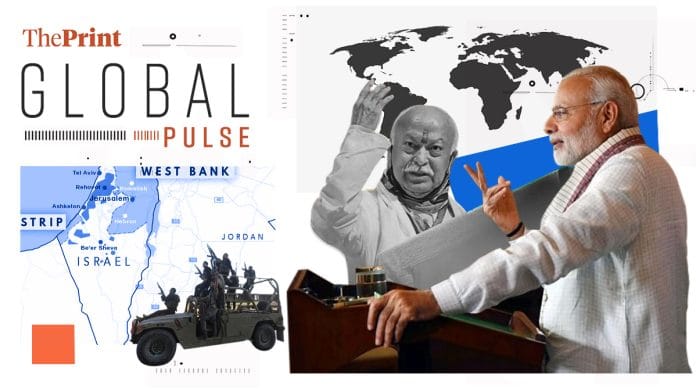New Delhi: There was “clearly a decisive vote for change” in the recently concluded election by Indians concerned with economic growth “spread incredibly unequally” and “rising prices”, columnist Lydia Polgreen says in the New York Times opinion piece, ‘What Modi’s dwindling support says about democracy worldwide‘.
Polgreen says people wanted “a very clear check” on the power of Narendra Modi in the government this time, calling attention to how the Bharatiya Janata Party (BJP) not only fell short of a majority in the election but also lost Ayodhya, where the central campaign was that Modi “could deliver on his promises” after the building of a temple complex on the site of a demolished mosque.
Moreover, the opposition parties this time proved effective, Polgreen further says, talking about how they came together and “relentlessly” campaigned on the Modi government’s “failure to deliver for the poor” and “that message clearly won out at the end of the day”. The US, she adds, should learn from India that “you have to meet voters where they are, and you have to focus on the issues that they care about most”.
In the Bloomberg opinion piece, ‘The sameness of Modi 3.0 is a mirage’, columnist Andy Mukherjee says that despite the BJP retaining top cabinet ministers, its coalition partners secured 11 ministerial berths, and despite appearances, Modi’s third term faces significant changes and challenges.
The previous government was “a one-man show centered on Modi” at the cost of “institutional checks and balances”, says Mukherjee, adding that the new government will be different as coalition partners exercise their bargaining powers and Opposition lawmakers make their voices heard. “The judiciary will also flex its independence a little more, as will the pliant Indian media,” writes Mukherjee. He also raises the possibility of another leader, such as Yogi Adityanath, gaining more power within the BJP and more scrutiny on businesses close to the BJP.
In the Bloomberg report, ‘Powerful Hindu group that spawned Modi party slams his campaign‘, Swati Gupta discusses how Rashtriya Swayamsevak Sangh chief Mohan Bhagwat called out the BJP at a public address Monday. The report quoted Bhagwat as saying that “a moral line” was “crossed” during the election battle, that the ethnic violence in Manipur needed dealing with “on priority”, and that the BJP was not “listening to the voices on the streets”. Moreover, an article in an RSS-affiliated magazine criticised the “divisive” poll campaign and its reliance on Modi’s popularity, writes Gupta.
In ‘After India’s surprising elections, what’s next for Modi’s foreign policy‘, Daniel Markey, a senior advisor on South Asia at the United States Institute of Peace, writes for the non-profit that “foreign and national security policy are not likely to be the priority issues for a re-energized parliament, and the BJP’s coalition partners are far more concerned about parochial regional and bread-and-butter topics”.
“Moreover, the prime minister’s office does not need much legislation to manage the core activities of diplomacy and national security and has in recent years centralised its hold over the functioning of relevant ministries and agencies,” the piece notes. However, the “sting of electoral underperformance and political vulnerability” will allow normal parliamentary order where Modi’s policies will be exposed to “heated public debate” and that the election outcome will affect how states like the U.S. perceive India and Modi.
Hamas accepts Gaza peace deal & plane crash kills Malawi VP
Hamas has accepted the US-backed United Nations Security Council ceasefire resolution for Gaza while demanding a “complete halt of war”. To know more about the three-phase deal and what happens next, read Al Jazeera and BBC’s report.
Malawi’s Vice President Saulos Chilima has been confirmed dead after his aircraft went missing Tuesday. He was onboard with nine others. To know more, read DW’s report.
(Edited by Madhurita Goswami)
Also read: How BJP’s setback ‘rattled’ investors & ‘surprised’ NRIs, and Modi’s guarantees for 3rd term






